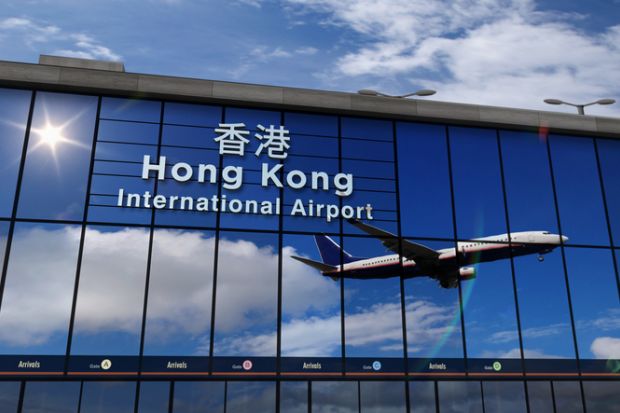Hong Kong has unveiled a multi-pronged plan to draw much-needed international talent to its companies and institutions, but some academics are sceptical it will counter brain drain.
The city’s chief executive John Lee Ka-chiu said he would focus on “trawling for talent”, announcing measures to build more affordable housing, improve healthcare and give foreigners and students more opportunities to stay longer in the city. The move comes amid a 10-year low in university applications and the worst demographic decline in decades.
Under the plan, overseas and Chinese mainland students will be able to remain in Hong Kong for two years, up from one year currently. The city will offer a “Top Talent Pass” two-year visa for high earners and graduates of the leading 100 universities internationally, according to local media.
The plan would also increase the number of postgraduate students in the sector by roughly 1,600 – from 5,600 to 7,200 by 2024-25.
But at least one scholar was pessimistic the measures would make much difference for the city’s higher education sector.
“I cannot help but wonder if Hong Kong’s government officials are delusional, or whether these measures are simply window dressing, trying to create the impression that everything is being done to attract talent to Hong Kong,” said Carsten Holz, professor of economics at the Hong Kong University of Science and Technology.
He said that prospective students usually gave “little or no thought” to how long they might work in the city after graduation, although he said an exception could be mainland students coming for postgraduate education.
Hong Kong will need to surmount bigger issues to burnish its image with foreigners, Professor Holz said.
He noted that many foreign academics have a “much higher personal barrier” to coming to the city than they did before June 2020, when the city brought in its National Security Law, seen by many as a clampdown on free speech and political dissent.
“As long as Hong Kong’s image abroad remains severely damaged, the only hope for Hong Kong universities to attract the best students is to be top research and teaching institutions themselves,” Professor Holz said. “The only possibility to overcome these higher barriers is with higher remuneration.”
In response, a spokesperson for the city’s Labour and Welfare Bureau said it has been consistently ranked highly by international agencies for its “economic vibrancy and competitiveness”.
“With Hong Kong’s attractiveness and competitive advantages, we are confident our enhanced efforts in attracting talents will achieve results,” she said.
Register to continue
Why register?
- Registration is free and only takes a moment
- Once registered, you can read 3 articles a month
- Sign up for our newsletter
Subscribe
Or subscribe for unlimited access to:
- Unlimited access to news, views, insights & reviews
- Digital editions
- Digital access to THE’s university and college rankings analysis
Already registered or a current subscriber? Login








